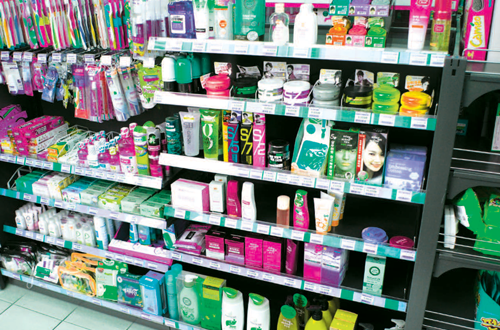Q. What incident has shocked you and moved you as an environmentalist in these past years of campaigning?
Recently I was travelling with my 6-year old daughter to Tirunelveli. We got off the station and took an auto rickshaw to Palayamkottai to meet a friend. On the way, we crossed the Tamiraparani River, one of the few flowing rivers in Tamil Nadu.
“Madhura, this is the Tamiraparani Aaru (river),” I told my daughter in Tamil.
“A river? Like the Adyar River?” she asked referring to the river that flows into the sea less than a kilometer from our house in Besant Nagar, Chennai.
Very happy that she had made the connection, I said “Yes. Like the Adyar.” What she said next flummoxed me.
“If it’s a river, why doesn’t it smell, appa?” she asked.
For my daughter, and in her environmental experience, a river is a flowing line of stink. The definition of the ‘natural,’ has been so radically altered in our times. It was only after my daughter’s arrival in my life, and through her eyes, her acute senses and little hands did I realise how drastically we have altered the environmental experience for our children.
Q. How do you think people are poisoning/harming themselves and the environment that immediately surrounds them?
Men and women today, especially those that are educated and wealthy, are all devotees of consumerism, and our temples can be found inside supermarkets and malls. Given the importance of buying and consuming in
our society, the sellers – the corporations – are the ones that determine the meaning of worth and worthlessness.
Take the concept of beauty. Women in particular, but men too increasingly, are subject to a corporate-defined code of what is beautiful and what is not. Dark is not beautiful. Normal is not ok – the market is just not happy with who you are. The solution for world’s problems is to go and shop.
With lipsticks, hair styling gels, eye shadow, talcum powder, skin whitening creams, lotions, shampoos and conditioners, your dressing table and bathroom rank quite high as toxic hotspots inside your house. If you love yourself, you would find better ways of looking good. The guidelines are simple. If the It is possible to significantly reduce our recipe for beautification comes from your grandmother, it is likely to be safe. If it comes in a plastic container sold by a corporation, you have reason to be worried no matter whether the label on the bottle has words like “Natural” or “Organic” or “Herbal.” These words have no legal meaning. A shampoo that is called herbal is still likely to have many synthetic chemicals including carcinogens.
When you have 10 minutes, watch The Story of Cosmetics at http://storyofstuff.org/movies/ story-of-cosmetics/ According to the narrator less than 20 percent of the chemicals in cosmetics have been tested for safety. Skin whitening creams do not work, and contain numerous toxic chemicals. It is patently racist for corporations to claim that dark is ugly to sell their products.
Q. Could you list scientifically proven common ailments that can be related to environmental toxicity ?
Asthma, stroke, cardiovascular problems – dust, smoke
Cancer – toxic chemicals such as benzene, vinyl chloride, dioxins, furans. The latter two are released when PVC plastic is burnt.
Mental disorders (effects to the brain) – heavy metals such as mercury and lead can affect the brain and cause mild to serious damage.
Skin disorders, nasal cancers – metals like Arsenic and Chromium.
Q. Can you suggest practical ways to detoxify ourselves or our habitat even when we cannot change the entire environment?
It is possible to significantly reduce our environmental exposure by being careful about what we eat and use. Reduce or eliminate the use of synthetic cosmetics. Use shikakai, soap nut or home-made herbal formulations instead of chemical shampoos; herbal formulations or green gram powder with turmeric as face wash etc.
Be very careful with food, particularly with eggs, chicken, meat, fish and milk. Broiler chickens are pumped full of chemicals, antibiotics, growth hormones and other dangerous substances. Totally avoid eating broiler chickens. Have country chicken instead. Country chicken raised in factory farms are also unhealthy. Home or free-range chicken is best. Ditto with eggs. Broiler eggs – the kind that we commonly find in stores – is not healthy. Get country chicken eggs. Avoid prawns that come from aquaculture farms. Avoid fish caught in polluted rivers or water bodies. See if you can source organic milk.
Q. What difference can an average woman make for sensitising her world through her various roles – as a mother, wife, sister, teacher, doctor etc.?
Women often play multiple roles – as caregivers in addition to being wage earners. As caregivers, women are left with the onerous responsibility of making choices that will affect the health of people in their care. Women who are playing this role need to inform themselves and exercise choices that will leave them and their families healthier.
Q. What practical steps can the church take to inculcate an environmental accountability?
Churches and religious institutions have tremendous power in defining the culture of communities. In this day and age, everything is reduced to materialist consumption. Our festivals end up trashing the environment with plastics and human excreta. Our places of worship and ways of worshipping are harming nature. Church leaders can take steps to ensure that even our day-to-day rituals underscore the sanctity of life and respect for nature. The church, the rituals, the festivals, the meaning of Christmas – all these need to help move people from the materialist plane to a spiritual plane.
It is in the latter that true bliss and happiness is to be found.
 Mr. Nityanand Jayaraman, the well known environmentalist, was interviewed by Mrs. Alice Prema, to seek his input on the ailments brought about by a toxic environment, and what can be done about it.
Mr. Nityanand Jayaraman, the well known environmentalist, was interviewed by Mrs. Alice Prema, to seek his input on the ailments brought about by a toxic environment, and what can be done about it.
Mr. Jayaraman teaches “Ecology and Environment” in the Asian College of Journalism, Chennai. He works with city residents to mobilise support for community struggles against pollution and corporate crime.
 Juliet Thomas Christian Articles for Young Women
Juliet Thomas Christian Articles for Young Women


